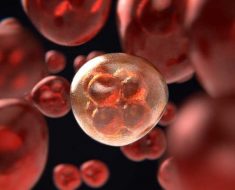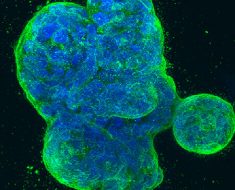Could pizza consumption improve rheumatoid arthritis severity?
In a recent article published in the Nutrients Journal, researchers enrolled rheumatoid arthritis (RA) patients to investigate whether pizza and its ingredients modulated RA disease activity.
 Study: Does Pizza Consumption Favor an Improved Disease Activity in Rheumatoid Arthritis? Image Credit: VasiliyBudarin/Shutterstock.com
Study: Does Pizza Consumption Favor an Improved Disease Activity in Rheumatoid Arthritis? Image Credit: VasiliyBudarin/Shutterstock.com
Background
Most rheumatoid arthritis (RA) patients do not easily attain a low disease-activity state or sustained remission. Accordingly, active and in-remission cases of this chronic inflammatory disease involving multiple joints and autoimmune pathogenesis are increasing in prevalence worldwide, including in Italy.
RA treatment represents a major public health issue. Both patients and clinicians are continuously looking out for novel solutions to alleviate the disease burden. Initially, the researchers focused on disease-modifying anti-rheumatic drugs (DMARDs) that prevent RA-related long-term complications; now, the focus has shifted to exploring the effects of diet in RA patients.
Most observational studies investigated the effects of short-term dietary interventions on RA activity. The need is to shift the design of studies investigating RA activity because a modest real-world benefit of a regular diet could prove more critical than the short-term benefits of interventional dietary programs.
Few studies have investigated pizza's role on health; however, only in the context of cardiovascular diseases and cancer. Thus, studies evaluating the potential effect of consuming pizza on inflammatory diseases, e.g., RA, are sparse.
About the study
Thus, in the present study, researchers focused their RA activity investigations on pizza, a single food item that is inexpensive, tasty, and accessible globally.
Compared to the rest of the world, in Italy, 44% of Italians make pizza at home, and 58% consume pizza through pizzerias or by cooking at home. They do not consider Pizza as unhealthy or junk food but as a balanced source of carbohydrates, proteins, and fats.
Within Italian tradition, Pizza is a standalone meal made of fresh mozzarella cheese and "pomodorini" (cherry tomatoes) over a lean type 00 wheat flour dough containing water, salt, and yeast.
Outside Italy, the United States of America (USA) consumes 13 kilos per capita per year of pizza through its 75,000 pizzerias, which also sell frozen pizza. These prominent variations in consumption patterns of pizza in Italy and elsewhere raise the need to investigate the effect of pizza consumption on RA patients in Italy.
All recruited patients were between 18 and 65 years, had RA for a minimum of three months, and adhered to the RA classification criteria outlined by the American College of Rheumatology (ACR) or European League Against Rheumatism in 1987 and 2010, respectively.
Briefly, the team gathered sociodemographic and anthropometric characteristics, cigarette smoking and alcohol consumption statuses, and medical history of all the participants. They measured their RA activity using two composite measures, the Simplified Disease Activity Index (SDAI) and the Disease Activity Score based on 28 joints with C-reactive protein (DAS28-CRP).
To gather information about the intake of each food item and beverage in their diet, the team asked all the participants to complete a 110-item food frequency questionnaire (FFQ), where frequency categories ranged from "never" to "4 to 5 times per day".
The researchers removed the participants who unreliably filled in the FFQ, which left 365 subjects of the 366 study participants in the current study analyses.
In the current analysis, the researchers specifically examined the effects of free and ad libitum eating pizza, refined flour, olive oil, and mozzarella cheese. The refined-grains food group covered bread and bakery products, pasta, rice, cornflakes/wheat cereals, and corn.
The team used robust multiple linear and logistic regression models to measure RA activity as the dependent and each pizza-related food item as independent variables, respectively. They performed stratified analyses per RA severity or duration.
Results and conclusion
Participants in the higher consumption category who ate half a pizza more than once per week reported beneficial effects on disease activity, with significant protection ~0% in the overall analysis compared to those eating pizza ≤2 times per month.
In the more severe stratum, the beneficial effect was evident from reductions in risk values attaining 80%, both from logistic regression and linear models, with corresponding beta coefficients in the order of −0.70 and −3.6 for the DAS28-CRP and SDAI in the long-standing and more severe RA strata, respectively.
In the more severe stratum, mozzarella cheese and olive oil also showed beneficial effects with the observed statistical significances of −0.37 and −2.09 for the DAS28-CRP and SDAI in two of the four fitted models.
In Italy, the birthplace of pizza, the best ingredients in their freshest state are available. Thanks to certified recipes, people consuming pizza in Italy get the best anti-inflammatory and antioxidant effects that pizza is perceived to bestow.
As a result, in this study, the authors noted that higher consumption of pizza, mozzarella cheese, and olive oil improved the composite, internationally recognized measures of RA disease activity.
Yet, future cohort studies must confirm these beneficial effects of pizza and related foods on RA disease activity, adjusting for multiple confounders typical of RA.
-
De Vito, R. et al. (2023) "Does Pizza Consumption Favor an Improved Disease Activity in Rheumatoid Arthritis?", Nutrients, 15(15), p. 3449. doi: 10.3390/nu15153449. https://www.mdpi.com/2072-6643/15/15/3449
Posted in: Medical Science News | Medical Research News | Medical Condition News
Tags: Alcohol, Anti-Inflammatory, Antioxidant, Arthritis, Bread, Cancer, Chronic, Cigarette, C-Reactive Protein, Diet, Drugs, Food, Frequency, Inflammatory Disease, Junk Food, Nutrients, Olive Oil, Pasta, Protein, Public Health, Rheumatism, Rheumatoid Arthritis, Rheumatology, Smoking, Wheat, Yeast

Written by
Neha Mathur
Neha is a digital marketing professional based in Gurugram, India. She has a Master’s degree from the University of Rajasthan with a specialization in Biotechnology in 2008. She has experience in pre-clinical research as part of her research project in The Department of Toxicology at the prestigious Central Drug Research Institute (CDRI), Lucknow, India. She also holds a certification in C++ programming.





